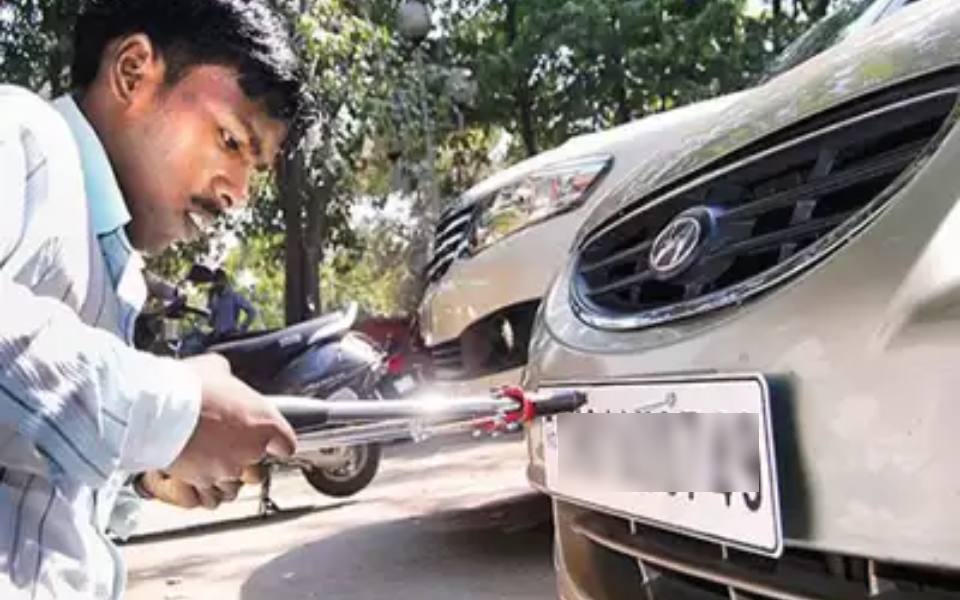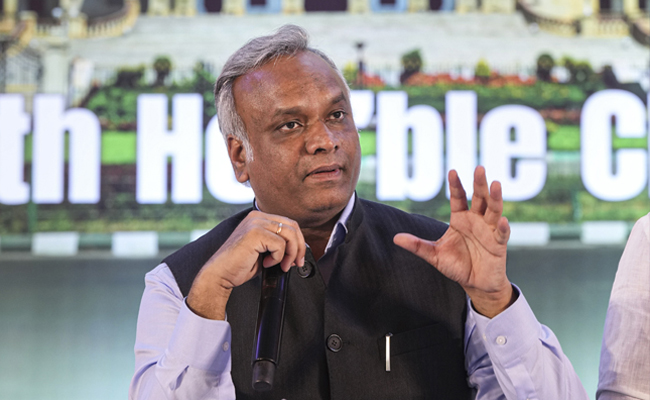Bengaluru: The Karnataka state transport department has announced that all vehicles registered prior to April 1, 2019, must be equipped with high-security registration plates (HSRP) by November 17, 2023.
A recent notification issued on August 17, 2023, outlines that vehicle owners failing to comply with this deadline will face penalties ranging from Rs 500 to Rs 1,000.
HSRPs, distinguished by their permanent identification numbers and chromium-based holograms, come with tamper-proof features, ensuring standardized and secure registration plates, stated a transport department official.
ALSO READ: Hassan: Four police officers suspended after drugs, mobile phones found in prisoners' possession
Approximately 1.75 crore to 2 crore vehicles were registered in Karnataka before April 1, 2019, as per the transport department's estimates. "Starting April 1, 2019, the installation of HSRPs became mandatory for all newly registered vehicles," shared a senior official.
The authorized HSRP manufacturers, in collaboration with vehicle manufacturers, are responsible for supplying these plates to dealers. The same system will apply to older vehicles, with orders for HSRP installation being facilitated through authorized dealers of vehicle manufacturers.
Regarding the cost of HSRPs, the official mentioned, "Authorized suppliers are chosen by vehicle manufacturers through competitive pricing. Prices may range from Rs 400 to Rs 500 for four-wheelers and between Rs 250 and Rs 300 for two-wheelers. A total of 12 states have already implemented this rule in accordance with central government guidelines."
The Significance of HSRP Implementation
The transport department's notification emphasizes that HSRPs prevent tampering and counterfeiting of plates, contributing to the reduction of vehicle-related crimes and facilitating easy identification of vehicles on the road.
Upon installing HSRPs, authorized dealers or manufacturers are required to update laser coding on the Vahan portal. However, vehicles lacking registration certificates, fitness certificates (for transport vehicles), or overdue road tax will not be eligible for HSRPs.
Let the Truth be known. If you read VB and like VB, please be a VB Supporter and Help us deliver the Truth to one and all.
Dubai (PTI): India spinner Varun Chakravarthy on Wednesday consolidated his position at the top of the ICC Men's T20I Bowler Rankings, reaching a career-best rating following a stellar show in the ongoing T20 series against South Africa.
The 34-year-old Chakravarthy earned a new best rating of 818 points on the back of his third consecutive two-wicket haul in five-game home series.
The right-armer has six wickets across the first three matches of the series, with his spell of 2/11 from four economical overs in the most recent contest in Dharamsala proving pivotal in India's clinical seven-wicket triumph.
Chakravarthy (818 rating points) now holds a 119-point advantage over his closest rival in New Zealand seamer Jacob Duffy (699) in second-place, while also moveing inside the top 10 for the best rating of all-time for T20I bowlers.
Left-arm seamer Arshdeep Singh also improved four places to 16th overall on the rankings for T20I bowlers on the back of his Player of the Match heroics against the Proteas in the third game.
For South Africa, Marco Jansen (up 14 spots to 25th), Lungi Ngidi (up 11 rungs to 44th) and Ottneil Baartman also improved, reaching 68th from outside the top 100.
Among T20I batters, India now boast two players inside the top five on the rankings, with Tilak Varma gaining two spots to move to fourth overall after a trio of decent innings against South Africa.
Teammate Abhishek Sharma maintains a decent buffer at the top, while South Africa duo Aiden Markram (up eight places to 29th) and Quinton de Kock (up 14 spots to 43rd) made good ground following some decent recent efforts.
Pakistan's Saim Ayub has a narrow lead at the top of the rankings for T20I all-rounders despite not playing any international matches across the last week, with India's Shivam Dube the big mover on this list as he improves two places to 16th.





